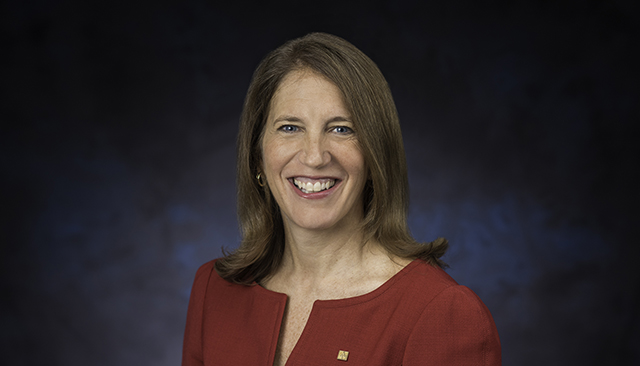
Perfusion is an integral part of your hospital’s cardiovascular care program, but the overhead costs and administrative burden of maintaining and managing a team of reliable perfusionists with advanced skills can pose challenges for program administrators. It can be easy, however, to overlook both the indirect costs and benefits of clinical services. So, whether your perfusion is handled in-house or outsourced, we’ve developed a new guide, The Real Spend of Your Perfusion Program: Twelve Tips to Discover the True Value, to help you evaluate your program and any changes that you might be considering.

We all want the best quality for the best value, but it’s often difficult to evaluate our options accordingly. Hospitals that are exploring outsourced intraoperative neuromonitoring (IONM) options obviously want to know what they’re paying, which can be difficult when different vendors present different pricing models and different services. It can be like comparing apples to oranges to strawberries. They’re all fruit, but clearly not the same. Here are some quick tips for evaluating outsourced IONM services, taken from our new guide, The Real Spend of Your IONM Program: Eight Tips to Discover the True Value.

A complex system offers a lot of places to hide bad behavior. Medicare and Medicaid—programs at the heart of the current healthcare debate—are particularly vulnerable to violations of Stark Law, the Anti-Kickback Statute, and the False Claims Act. Nearly every day, the Office of Inspector General (OIG) issues details of individuals and hospitals being charged or convicted of healthcare fraud and abuse. Financial penalties and the possibility of imprisonment aside, damning headlines can destroy the bottom line and reputation of even the most respected providers. Compliance violations drive up healthcare costs and compromise patients who are overcharged or subjected to unnecessary tests and treatments.

Changes in reimbursement models are driving changes in operations, including data collection and reporting. Providers are being encouraged and incentivized to implement value-based care (VBC) that emphasizes cost savings and quality outcomes instead of the traditional fee-for-service (FFS) reimbursement model that pays according to the number of procedures performed. The idea is that when hospitals have financial incentives to be accountable for patient outcomes, then the comprehensive focus on quality will result in overall lower costs. Transitioning from FFS to VBC may be especially difficult for ORs with their high costs of procedures, but several strategies can help clear the path to progress.

On October 26, 2016, SpecialtyCare acquired Sentient, a highly regarded intraoperative neuromonitoring provider. We’re thrilled to welcome the people of Sentient to our team. We believe we’ll be a great fit together, both clinically and culturally. Combining our talent and experience will enhance our collective strengths and create new opportunities to advance patient care and drive clinical quality, which reduce costs for our patients and customers.

Sylvia Burwell, Secretary of the Department of Health and Human Services (HHS), is tasked with transforming our healthcare system from a fee-for-service model to a value-based system driven by the goals of access, affordability, and quality. Initiatives and legislation linked to Medicare, Medicaid, and other programs, such as the Health Insurance Marketplace and the Patient Protection and Affordable Care Act, have all but upended our healthcare system, sending providers, payers, and patients scrambling to understand and manage the changes.

When Richard Lawson talks with young people about their future, he sometimes suggests a stint in the military. Other times he suggests a career in the medical field. And sometimes, he suggests both. These are not just casual recommendations—he speaks from experience. Technical Sergeant Lawson is a military veteran and a member of the Kentucky Air National Guard. He is also a SpecialtyCare perfusionist. His discipline and dedication over the years has resulted in not just one, but two, meaningful and impressive careers.

Estimates vary when calculating the money lost to fraud—it’s difficult to measure that which is undetected—but the Federal Bureau of Investigation (FBI) states that healthcare fraud costs the country tens of billions of dollars each year. Paying for law enforcement, legal resources, and sophisticated technology to combat the problem adds to the price tag. Taxpayers and employers endure the financial brunt of fraud, but illegal schemes can also put patient health at risk. Clearly, healthcare fraud is not a victimless crime.

It’s not surprising that surgeons report high levels of burnout and a lack of professional satisfaction; nor is it surprising that the problem is getting worse. This creates concern for both the well-being of surgeons and the quality of patient care. As with other problems that might seem overwhelming, however, small adjustments can make a big difference. Here are some ways you can move the needle on surgeon satisfaction and, by extension, create efficiencies, lower costs, and realize better patient outcomes.

Our intraoperative neuromonitoring (IONM) research studies show that IONM helps keep patients safe during surgery, decreases complications, and reduces costs associated with the use of analgesics, length of hospital stay, neurorehabilitation, and long-term chronic care. One such study, Neurologic Outcomes Following Differential Resolution of Neuromonitoring Alerts during Extradural Spine Surgery, examines the relationship between reversal of intraoperative neurophysiologic change and neurologic outcome following segmental spine surgery.
